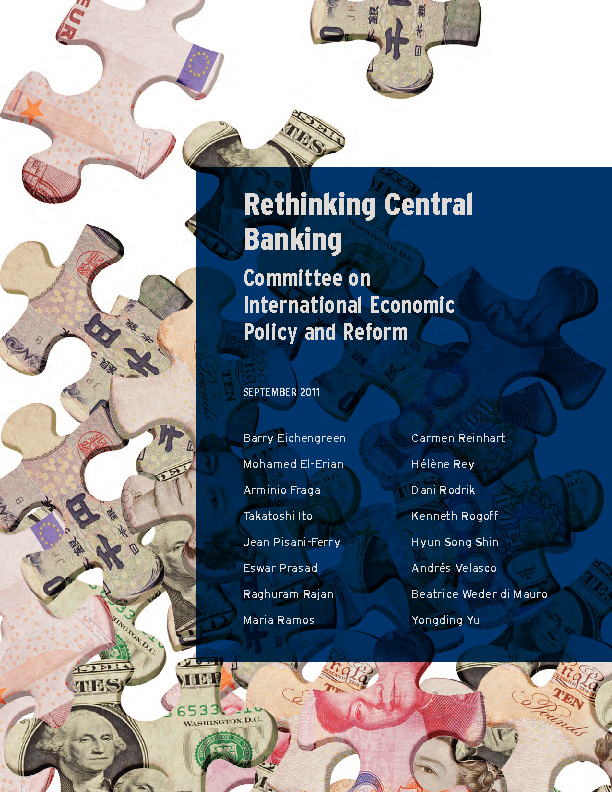Eswar S. Prasad
Nandlal P. Tolani Senior Professor of Trade Policy
 Rethinking Central Banking
Rethinking Central BankingThe Committee on International Economic and Policy Reform is a non-partisan, independent group of experts, comprised of academics and former government and central bank officials. Its objective is to analyze global monetary and financial problems, offer systematic analysis, and advance reform ideas. The Committee attempts to identify areas in which the global economic architecture should be strengthened and recommend solutions intended to reconcile national interests with broader global interests. Through its reports, it seeks to foster public understanding of key issues in global economic management and economic governance. Each Committee report will focus on a specific topic which will emphasize longer-term rather than conjunctural policy issues.
The committee's first report, "Rethinking Central Banking" was released in September 2011. The report lays out a framework for rethinking central banking in light of lessons learned in the lead-up to and aftermath of the global financial crisis.
By the early 2000s, a growing number of central banks, in advanced countries and emerging markets alike, had converged on a policy framework, flexible inflation targeting, which seemed capable of achieving price stability and delivering macroeconomic stability at the national and international levels. This framework had many practical achievements, including bringing price stability to many emerging markets. Now, however, there is growing recognition that the conventional approach to central banking needs to be rethought.
The relationship between price stability and the broader goals of macroeconomic and financial stability clearly needs to be redefined. Moreover, the evolution of monetary and exchange rate regimes has resulted in incompatibilities among the policies of some key countries. Central banks are also being pulled into new roles by the post-crisis environment, which features high levels of public and private debt in advanced economies, and concerns about capital inflows and currency appreciation in emerging markets. While some aspects of these roles are not new, they are risky as central bank actions can inflict collateral damage on domestic financial systems and have the potential of raising new domestic and international tensions.
The report analyzes these issues from academic and practical policy-oriented perspectives. Drawing on this analysis, it recommends changes to the dominant framework guiding central banking practice.
Launch event in Washington, DC, September 14, 2011
Washington Post, 26 September 2011
The Atlantic, 14 September 2011
Bloomberg TV, 14 September 2011
Return to Eswar Prasad's homepage
© 2020 Cornell University
Charles H. Dyson School of Applied Economics and Management